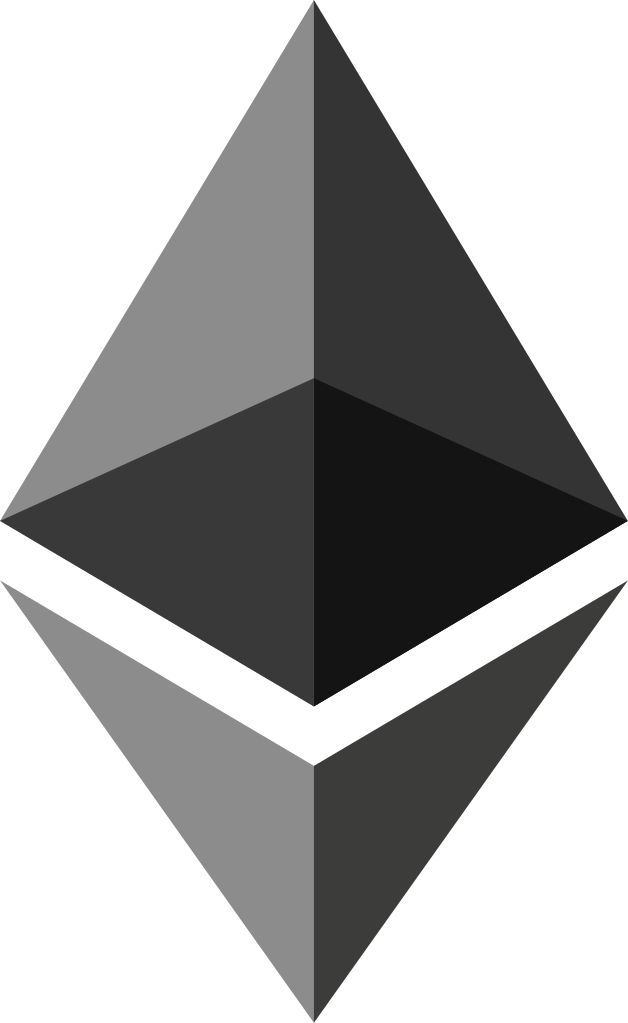Confronta Chainlink (LINK) vs Ethereum (ETH) Coin
This article is aimed at uncovering the differences and similarities between two significant cryptocurrencies in today's digital age, Chainlink (LINK) and Ethereum (ETH). While both have their distinct features and influence on the blockchain technology ecosystem, such a comparison can provide keen insights into their applications, benefits, and potential future developments.
User rating
Cryptogeek rating
Punteggio di Fiducia
Come funziona
About
|
ChainLink (LINK) è la valuta nativa della piattaforma ChainLink. Rappresenta un token ERC-20 è elencato su più scambi accoppiati con i principali cryptos. Al momento della scrittura, puoi scambiare LINK contro la valuta fiat USD su Coinbase Pro.
I contratti intelligenti non sono in grado di accedere ai dati da soli. Poiché la connessione di questi contratti ai dati tramite nodo è considerata un punto di errore, l'utilizzo di un servizio decentralizzato potrebbe essere una soluzione.
Pertanto, il progetto ChainLink vede la sua missione nell'integrazione dei dati off-chain in contratti intelligenti attraverso una rete oracle decentralizzata affidabile. I token LINK hanno colpito il mercato nel 2017 e la valuta si è rapidamente fatta strada tra le prime 50 criptovalute per capitalizzazione di mercato. Successivamente ha raggiunto la top 20. ChainLink collabora con una grande rete bancaria SWIFT.
|
Ethereum è una rete di innovazione che fornisce alla propria blockchain la sua criptovaluta (Ether o ETH). Questa blockchain ospita applicazioni decentralizzate (DApps) che sono state introdotte per la prima volta da Ethereum. Un'altra innovazione di questa piattaforma è l'implementazione di contratti intelligenti che ha cambiato la percezione del possibile utilizzo della blockchain, rivelando il potenziale della tecnologia al massimo.
|
Tipo
Data di lancio
Località:
Lingue
Team
Protocollo
|
Public blockchain
|
Public blockchain
|
Prezzo attuale (USD)
Più alto di sempre (USD)
Variazione di prezzo (24 ore)
Volume (24 ore)
|
Nessun dato
|
4104895897.05010
|
Hashrate
Limite Massimo
Totale offerta
Limite in circolazione
|
Nessun dato
|
120708316.76639
|
Velocità di transazione / Tempo blocco
Commissione sulla transazione
Profitabilità di mining
Algoritmo
Proof type
Completamente estratto
Smart contract indirizzo
Totale monete estratte
|
Nessun dato
|
111766505.06150
|
Sta commerciando
Ricompensa di blocco
|
Nessun dato
|
2.000000000000
|
Tempo di blocco
| About |
ChainLink (LINK) è la valuta nativa della piattaforma ChainLink. Rappresenta un token ERC-20 è elencato su più scambi accoppiati con i principali cryptos. Al momento della scrittura, puoi scambiare LINK contro la valuta fiat USD su Coinbase Pro.
I contratti intelligenti non sono in grado di accedere ai dati da soli. Poiché la connessione di questi contratti ai dati tramite nodo è considerata un punto di errore, l'utilizzo di un servizio decentralizzato potrebbe essere una soluzione.
Pertanto, il progetto ChainLink vede la sua missione nell'integrazione dei dati off-chain in contratti intelligenti attraverso una rete oracle decentralizzata affidabile. I token LINK hanno colpito il mercato nel 2017 e la valuta si è rapidamente fatta strada tra le prime 50 criptovalute per capitalizzazione di mercato. Successivamente ha raggiunto la top 20. ChainLink collabora con una grande rete bancaria SWIFT.
|
Ethereum è una rete di innovazione che fornisce alla propria blockchain la sua criptovaluta (Ether o ETH). Questa blockchain ospita applicazioni decentralizzate (DApps) che sono state introdotte per la prima volta da Ethereum. Un'altra innovazione di questa piattaforma è l'implementazione di contratti intelligenti che ha cambiato la percezione del possibile utilizzo della blockchain, rivelando il potenziale della tecnologia al massimo.
|
| Tipo |
Tipo
token
|
Tipo
coin
|
| Data di lancio |
Data di lancio
2017
|
Data di lancio
2015
|
| Località: |
Località:
Nessun dato
|
Località:
Canada
|
| Lingue |
Lingue
Nessun dato
|
Lingue
Nessun dato
|
| Team |
Team
Public
|
Team
Public
|
| Protocollo |
Protocollo
Public blockchain
|
Protocollo
Public blockchain
|
| Prezzo attuale (USD) |
Prezzo attuale (USD)
Nessun dato
|
Prezzo attuale (USD)
4718.9512
|
| Più alto di sempre (USD) |
Più alto di sempre (USD)
Nessun dato
|
Più alto di sempre (USD)
1432.8800
|
| Variazione di prezzo (24 ore) |
Variazione di prezzo (24 ore)
Nessun dato
|
Variazione di prezzo (24 ore)
2.93
|
| Volume (24 ore) |
Volume (24 ore)
Nessun dato
|
Volume (24 ore)
4104895897.05010
|
| Hashrate |
Hashrate
Nessun dato
|
Hashrate
190120
|
| Limite Massimo |
Limite Massimo
Nessun dato
|
Limite Massimo
Nessun dato
|
| Totale offerta |
Totale offerta
Nessun dato
|
Totale offerta
Nessun dato
|
| Limite in circolazione |
Limite in circolazione
Nessun dato
|
Limite in circolazione
120708316.76639
|
| Velocità di transazione / Tempo blocco |
Velocità di transazione / Tempo blocco
Nessun dato
|
Velocità di transazione / Tempo blocco
15
|
| Commissione sulla transazione |
Commissione sulla transazione
Nessun dato
|
Commissione sulla transazione
Nessun dato
|
| Profitabilità di mining |
Profitabilità di mining
medium
|
Profitabilità di mining
high
|
| Algoritmo |
Algoritmo
Nessun dato
|
Algoritmo
Ethash
|
| Proof type |
Proof type
Nessun dato
|
Proof type
PoW
|
| Completamente estratto |
Completamente estratto
Nessun dato
|
Completamente estratto
Nessun dato
|
| Smart contract indirizzo |
Smart contract indirizzo
Nessun dato
|
Smart contract indirizzo
Nessun dato
|
| Totale monete estratte |
Totale monete estratte
Nessun dato
|
Totale monete estratte
111766505.06150
|
| Sta commerciando |
Sta commerciando
Nessun dato
|
Sta commerciando
yes
|
| Ricompensa di blocco |
Ricompensa di blocco
Nessun dato
|
Ricompensa di blocco
2.000000000000
|
| Tempo di blocco |
Tempo di blocco
Nessun dato
|
Tempo di blocco
15
|
Media
Sito web
Twitter
Vantaggi
|
Capacità tecnologiche
Offre oracoli decentralizzati
Presenza significativa sui social network
|
Well-known Founder
An expanding developer community
More than a cryptocurrency
Continues to attract more businesses
|
Svantaggi
|
Poche garanzie per gli investitori
Scarsa comunicazione su ulteriori sviluppi
|
Struggles with scaling
Uses a complicated programming language
High transaction fees
|
Valutazione
| User rating |
User rating
5 / 5
3 recensioni degli utenti
|
User rating
5 / 5
3 recensioni degli utenti
|
| Cryptogeek rating |
Cryptogeek rating
4.2 / 5
|
Cryptogeek rating
4.6 / 5
|
| Vantaggi |
Vantaggi
Capacità tecnologiche
Offre oracoli decentralizzati
Presenza significativa sui social network
|
Vantaggi
Well-known Founder
An expanding developer community
More than a cryptocurrency
Continues to attract more businesses
|
| Svantaggi |
Svantaggi
Poche garanzie per gli investitori
Scarsa comunicazione su ulteriori sviluppi
|
Svantaggi
Struggles with scaling
Uses a complicated programming language
High transaction fees
|
La valutazione degli utenti di Chainlink (LINK) è 5, basata sulle recensioni degli utenti di 3. La valutazione degli utenti dell'azienda Ethereum (ETH) è 5, basata sulle recensioni degli utenti di 3.
We also calculate the special Cryptogeek TrustScore based on the characteristics of each coin.
Scegli altre aziende
After an in-depth analysis of Chainlink (LINK) and Ethereum (ETH), it's clear that the two cryptocurrencies, each have their unique value propositions and use cases. While Ethereum primarily focuses on enabling smart contracts and decentralized applications with its more general-purpose blockchain, Chainlink facilitates secure and reliable connection between blockchains and real-world data. Each has its place in the greater blockchain ecosystem and is shaping our technological future in distinct ways. The decision to use, invest or follow either of them really depends on individual preferences and goals.
This article is aimed at uncovering the differences and similarities between two significant cryptocurrencies in today's digital age, Chainlink (LINK) and Ethereum (ETH). While both have their distinct features and influence on the blockchain technology ecosystem, such a comparison can provide keen insights into their applications, benefits, and potential future developments.

